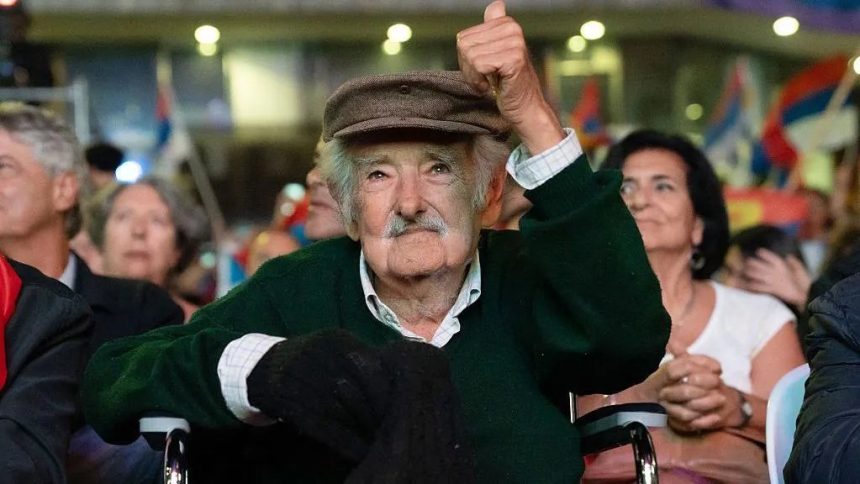José Mujica, the former president of Uruguay widely admired for his modest lifestyle and strong beliefs in social justice, has died at the age of 89.
His death was confirmed on Tuesday by Uruguay’s current president, Yamandú Orsi, who wrote on X, “Thank you for everything you gave us and for your deep love for your people.”
Mujica, often called the “world’s poorest president,” had been battling oesophageal cancer.
Known simply as “Pepe,” Mujica led Uruguay from 2010 to 2015 and gained global fame for his simple way of living, open support for social reforms, and strong criticism of materialism.
Despite being a president, Mujica chose not to live in the official presidential mansion. He lived with his wife, former guerrilla fighter and politician Lucía Topolansky, in their small farmhouse outside Montevideo. He drove an old blue Volkswagen Beetle, wore casual clothes, and donated most of his salary to charity.
“They say I’m the poorest president. No, I’m not,” Mujica once said in an interview. “Poor are those who want more because they’re in an endless race.”
Mujica helped make Uruguay the first country in the world to legalise marijuana for recreational use. His government also approved laws that legalised same-sex marriage and abortion, making Uruguay one of the most socially progressive countries in Latin America.
His time in office saw steady economic growth, a drop in poverty, and low unemployment rates. He left office with high approval ratings and was later elected as a senator.
Mujica’s journey into politics began with struggle. As a young man in the 1960s, he joined a leftist guerrilla group called the Tupamaros, which opposed the government. The group carried out robberies, kidnappings, and other armed actions, though Mujica always denied taking part in any killings.
He was arrested several times. In 1970, he was shot six times and nearly died. He escaped prison twice, once through a tunnel with over 100 others.
In 1973, when Uruguay’s military took control of the country, Mujica became one of nine political prisoners held in severe conditions for over a decade. He was freed in 1985 when democracy returned.
He once said that the day he was released from prison was the happiest day of his life. “Becoming president was insignificant compared to that.”
After leaving prison, Mujica entered formal politics. He served as a lawmaker, a minister, and later became president in 2010. Though he worked with Uruguay’s leftist coalition, Frente Amplio, he often acted independently and was known for his unique style.
Critics of his government pointed to increased public spending and slow progress in fixing the country’s education problems. Still, unlike many Latin American leaders, Mujica was never accused of corruption or power abuse.
He retired from politics in 2020 but remained a respected figure in Uruguay. His close ally, Yamandú Orsi, won the presidency in 2024 and paid tribute to Mujica’s legacy after his passing.











